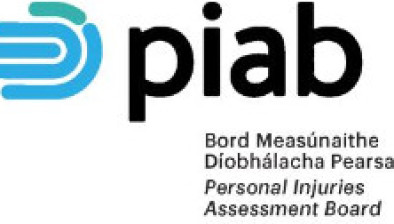Supreme Court: Hospital loses appeal against finding that limitation period began when medical report was furnished
A hospital has lost an appeal against the finding that the two-year limitation period for issuing personal injury proceedings began when the plaintiff received a doctor’s medical report based on hospital records – not when he was informed in the weeks after his surgery that he had contracted MRSA.

About this case:
- Citation:[2019] IESC 33
- Judgment:
- Court:Supreme Court
- Judge:Mr Justice Peter Charleton
In the leading judgment of the Supreme Court, Mr Justice Peter Charleton agreed with the High Court and the majority judgment of the Court of Appeal that the claim was not statute barred because the date of knowledge was when a medical report was furnished almost a year-and-a-half after the operation, and time only began to run at this point.
Background
On 20 September 2005, Mr Oliver O’Sullivan underwent a hemicolectomy operation in the Bon Secours Hospital in Cork. He was discharged without apparent complication; however, he had contracted an extremely severe MRSA infection and was readmitted to hospital on 30 September 2005 for emergency surgery. Further surgery was required in March 2006.
In March 2006, Mr O’Sullivan watched a programme on television about MRSA, and contacted the man featured in the show. Thereafter, he contacted a solicitor and made a freedom of information request to the hospital for medical records. Mr O’Sullivan’s solicitor received the hospital notes on 17 July 2006, and received a preliminary report from a general practitioner on 22 February 2007 based on the files received. This indicated that there had been an outbreak of MRSA in the hospital during the time of the first operation. On 3 June 2008. Mr O’Sullivan’s solicitor received a specialist report, dated 16 May 2008.
Personal injury summons issued
On 19 August 2008, Mr O’Sullivan issued a personal injury summons claiming damages from the hospital and other defendants.
Pursuant to the Statute of Limitations (Amendment) Act 1991, as amended by s. 7(a) of the Civil Liability and Courts Act 2004, the relevant limitation period for this action was two years from the accrual of the cause of action or from the date of knowledge, if later.
If, as argued by the hospital, the starting point was the contraction of the disease, the summons would have been out of time by 11 months – i.e. it was their argument that the proceedings should have been commenced by 19 September 2007.
The question before the Court concerned the date of knowledge provisions in s.2 of the Statute of Limitations (Amendment) Act 1991.
In the High Court in February 2012, considering the preliminary issue of whether the claim was statute barred, President Nicholas Kearns identified the date of knowledge as 22nd February 2007 when Mr O’Sullivan’s solicitor received the preliminary report following consideration of the records. As such, Mr O’Sullivan’s claim was not statute barred.
In the Court of Appeal in January 2018, the majority of the Court dismissed Bon Secours appeal, upholding the finding of the High Court that the clock did not start ticking until after 2007 when a medical report was furnished. In separate judgments, President Sean Ryan and Mr Justice John Edwards opined that, although it did not change the outcome of the appeal, the date of knowledge was after the May 2008 specialist report.
Supreme Court
In the Supreme Court, Bon Secours appealed against the finding of the Court of Appeal. Delivering the majority judgment of the Supreme Court, Mr Justice Charleton upheld the judgment of the High Court and the majority judgment of the Court of Appeal.
Mr Justice Charleton said that Mr O’Sullivan was not in a fit state following his surgery to appreciate that he had caught MRSA and that this was the cause of his potentially devastating situation – he was not physically or mentally able to receive or process the information.
Mr Justice Charleton said that the receipt of hospital records mentioning a positive swab result for MRSA in July 2006 was not enough to start the clock, and that time began to run when the general practitioner’s report was received in February 2007.
In a dissenting judgment, Mr Justice Donal O’Donnell said that the Court of Appeal’s interpretation and application of the Statute of Limitations (Amendment) Act 1991 was incorrect. Mr Justice O’Donnell said that when Mr O’Sullivan was informed on 4 October 2005 that he had become infected with MRSA during his initial operation – “either on its own or in conjunction with the television programme, if not providing the plaintiff with the relevant knowledge under s.2(1)(c), at least put him on inquiry”.
Mr Justice O’Donnell said that advice directed towards s.2(1)(c) of the Statute of Limitations (Amendment) Act 1991 could have been readily and speedily given, and that time began to run from that point.
- by Seosamh Gráinséir for Irish Legal News










